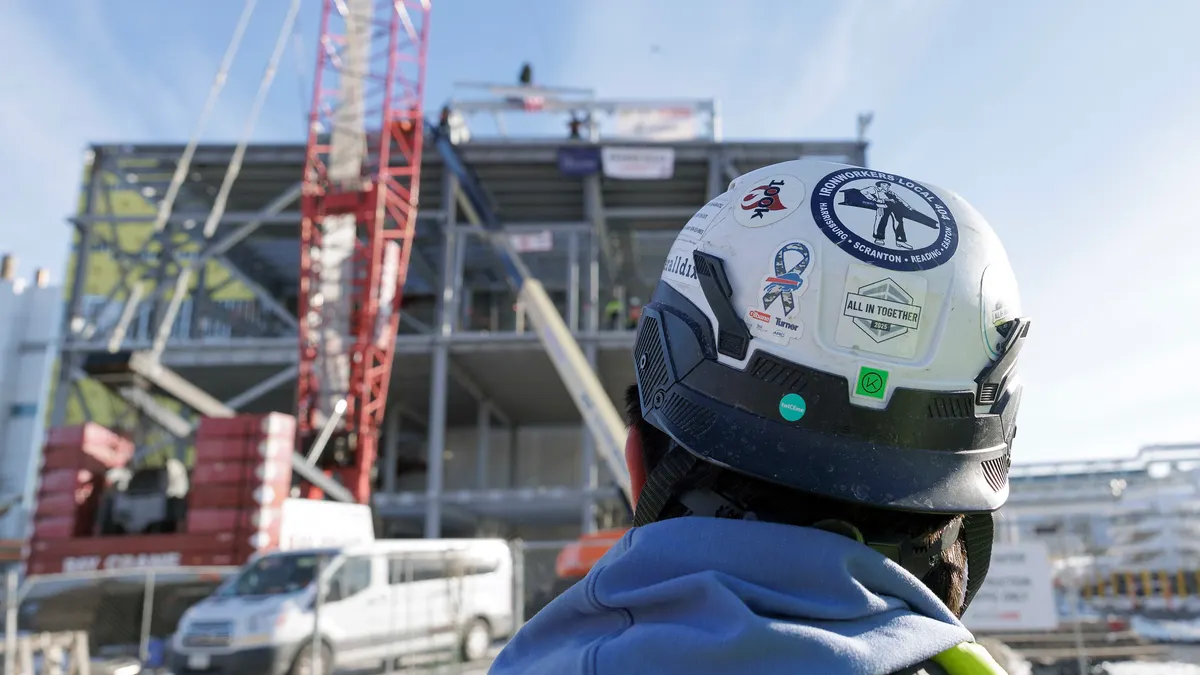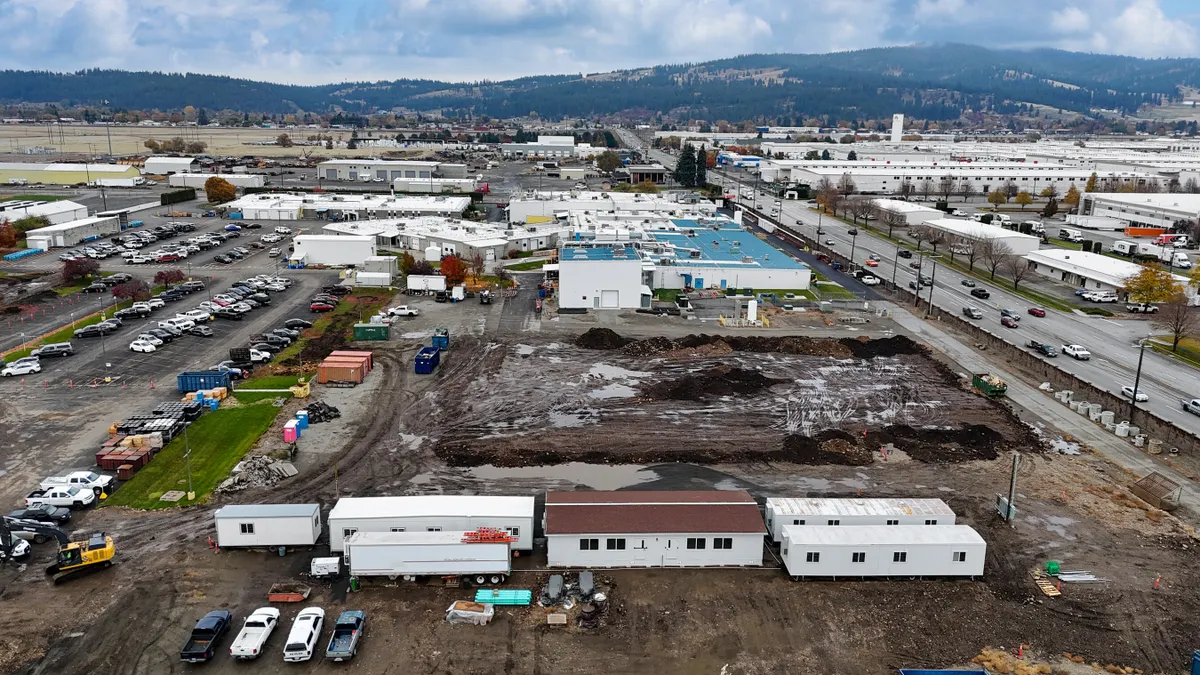This feature is a part of "The Dotted Line" series, which takes an in-depth look at the complex legal landscape of the construction industry. To view the entire series, click here.
Contractors participating in publicly funded construction projects often run up against conditions they might not otherwise come across in private work.
Such requirements can range from payment and performance bonds, to paying prevailing wages or submitting certified payroll forms on a regular basis. While some of those conditions may be easier to comply with than others, few are as contentious as local hiring requirements, or those that ensure a predetermined percentage of the job's workforce come from within the project's surrounding area.
Lawmakers in Erie County, NY, recently enacted a rule that requires any county construction project costing more than $250,000 and using at least three workers to maintain a local workforce made up of individuals from eight surrounding counties. Officials say the new order will create more opportunities for those in the region's pre-apprentice programs to move to full apprenticeships, eventually jumpstarting skilled labor pipeline.
Critics say the requirement — and others like it — can be a drag on a project's finances and construction timeline. More still, some have even determined such requirements to be unlawful. Taken together, those critiques have prompted some states to prevent government agencies from implementing these types of requirements altogether.
A legal bind
In 2015, Tennessee Attorney General Herbert Slatery declared a Nashville charter amendment invalid after city officials attempted to create a local-hire rule for its publicly funded construction projects. Slatery contended that the condition violated the Tennessee Contractors Licensing Act of 1994, which, he said, prohibited discrimination based on a licensee's residency.
The same year, in an attempt to evaluate the competitive bidding process based on local hiring requirements, then-President Barack Obama initiated a pilot program in the U.S. Department of Transportation (DOT). That program would allow state and federal governments to include local hiring requirements in their contracts on certain projects. Before leaving office, the Obama administration published a Notice of Proposed Rulemaking that sought to make the policy permanent, but the DOT — now led by President Donald Trump's appointee, Elaine Chao — withdrew it from consideration in August.
The next year, Tennessee's General Assembly passed a law solidifying Slatery's declaration. The law now prohibits state and local agencies from requiring contractors who bid on public construction projects to hire local residents.
Tennessee isn't alone in effecting a legal standard. In May 2016, the Ohio legislature passed a similar law banning local hiring requirements on public projects.
Weighing the value
As a piece of social legislation, local hiring requirements are meant to help low-income individuals economically by assisting them in securing a job, according to Julian Anderson, a construction law expert and chair of Rider Levett Bucknall's global board of directors. These policies, Anderson said, can work when the jobs in question are for long-term positions like police officers or firefighters. But construction employment doesn't work the same way, due to the temporary nature of most construction project positions.
When economic times are bad and there aren't many construction projects in progress, local hiring might serve a purpose, Anderson said. "It focuses the general contractor and developers into trying to make sure that skilled local people get a preference for a project in their locale."
Still, when the construction economy begins to reach normality again, and there is still an overall scarcity of labor, contractors may end up having to pay higher wages to incentivize local workers to remain in the area. Otherwise, Anderson said, they might be able to get more money elsewhere.
There are not enough workers. It's just that simple.

Andrew Richards
Chair of the construction practice group at Kaufman Dolowich & Voluck
And if that construction boom area is in a high-priced metro like Los Angeles, San Francisco or New York City, a local hiring requirement might be for naught. "It's too expensive for many of the tradespeople to live in communities where construction is going on," Anderson said. "If you have a local hiring preference, there's nobody able to do the work anyway."
According to Andrew Richards, chair of the construction practice group at Kaufman Dolowich & Voluck, local hiring requirements today are scarce in New York City agency construction contracts given the shortage of skilled labor. "There are not enough workers," he said. "It's just that simple."
At the federal level, hiring based on geography is not permitted in the interest of full and open competition, said Susan Lent, a partner at Washington, DC-based Akin Gump Strauss Hauer & Feld and head of the firm's infrastructure and transportation practice. Public agencies have to try to secure the best value — and that, she said, has been interpreted as prohibiting local hiring preferences.
According to Michael Kennedy, general counsel for the Associated General Contractors of America, these local-resident hiring requirements are unconstitutional no matter the level of the agency trying to implement them.
But some rules, like Erie County's, survive because of what Kennedy said is an imbalance of resources. Construction craft workers, specifically, are at a financial disadvantage when it comes to financing a legal fight. "These requirements exist and survive if and to the extent that they are not challenged," he said.
Accounting for the unexpected
If a private construction company takes on the responsibility of executing a local hiring program, these legal questions, of course, don't apply. Whether in a project labor agreement or as part of another contract, Kennedy said, if the government is the source of the requirement, then it's not lawful.
But until those laws are challenged in court, contractors are still left, in some cases, struggling to comply in an environment long on regulations and short on skilled labor.
Contractors on Detroit's Little Caesars Arena have been fined almost $3 million through March 2018 for falling short of the city's 51% local hiring requirement. The companies have reportedly acted in good faith to up their local recruiting efforts, but have still been unable to meet those goals due to a dearth of qualified workers.
To avoid facing similar legal and financial ramifications, Lent said, contractors should include caveats that protect against unavoidable situations. That can mean a waiver exempting contractors from meeting hiring requirements if there truly aren't enough skilled, local workers.
Contractors can also approach requirements from an economic point of view. "If I'm bidding on a project in an area that has local hiring regulations that I don't think I can meet, what I might do is build that into my price," Anderson said. If a contractor misses the hiring requirement, then as long as he or she has accounted for the resulting penalty in the overall bid, there's no real loss. "If I hit the target," he said, "Then I've increased my profit."



















